During an investigation into Kevin “Doc” Antle it was rumored that a former worker of his, who allegedly worked with Antle at the Kodak, TN big cat compound and traveled the fair circuit with him doing Pay to Play sessions with tigers was a criminal by the name of Thomas Huskey AKA The Zoo Man. This was verified by eyewitness accounts from TN Network for Animals who stated that Thomas Huskey was working for Mr. Antle and in charge of elephant care in the 1990’s, previous to and at the time of his arrest.
According to online news reports Thomas Dee Huskey would take prostitutes behind the zoo to have sex but often brutalized them. When some were found dead in shallow graves he is said to have confessed that his alter ego Kyle had killed the women. Despite his confession the murder charges were later dismissed because of what the state Supreme Court ruled were missteps by law enforcement and paperwork errors. He is eligible for parole in 2012 but may already be out based on what appears to be his Facebook online.
It is known that Thomas Dee Huskey was an elephant handler for the Knoxville Zoo. If you have evidence of the association between Huskey and Antle or any other exotic animal owner or zoo, please let us know in the comments below.
A.K.A.: “Zoo Man”
Classification: Serial killer?
Characteristics: Convicted rapist – Nicknamed “Zoo Man” by local prostitutes because he liked to have sex by the Knoxville zoo – Former zoo elephant trainer
Number of victims: 0 – 4
Date of murders: 1991 – 1992
Date of arrest: October 21, 1992
Date of birth: 1960
Victims profile: Patricia Rose Anderson, Patricia Ann Johnson, Darlene Smith and Susan East Stone (prostitutes)
Method of murder: Strangulation
Location: Knoxville, Tennessee, USA
Status: Sentenced to “66-year prison term for raping four other women. ” In the quadruple murder trial was declared mistrial on February 13, 1999
Read The Zoo Man Murders from Death’s Acre here
Even though Huskey will never be tried in serial killings, ‘he did it,’ detective who worked on case says
By Matt Lakin – Knoxnews.com
November 20, 2010
He swore another man killed four women – another man with a different personality who lured them with the same voice and strangled them with the same hands.
The only man accused of serial murder in Knox County sits in prison today, a convicted rapist who’ll never serve a day for the killings of four women in a thicket just outside the eastern city limits 18 years ago.
Judges ruled a series of missteps by investigators made prosecution of Thomas Dee Huskey, better known as the “Zoo Man,” impossible – despite a confession and souvenirs from the women’s bodies found in his bedroom.
Huskey, 50, qualifies for parole in two years. He claimed insanity at the time of his arrest in 1992 and told authorities the women died at the hands of “Kyle,” an alternate personality.
The men who made the case say they have just one regret.
“We got beat by the system,” said Dan Stewart, a retired Knox County Sheriff’s Office detective who helped win Huskey’s only conviction. “He wasn’t tried for it, but he did it. We acted in good faith, but the very paper we picked him up on was thrown out by the courts.”
Gregory P. Isaacs, who along with Herbert S. Moncier defended Huskey, didn’t discuss specifics of the case but described it as a personal and professional milestone.
“It was an all-star lineup of attorneys, prosecutors and experts from across the country,” Isaacs said. “When I first began representing Tom Huskey, it was the biggest case in the state of Tennessee. I had no children then. Now, 17 years and four kids later, we’re still litigating cases involving Tom Huskey. It was, is, and always will be an overwhelming case.”
Bodies in the brush
The case began in February 1992, months before a single prostitute died, when a woman came to Knoxville police with a lie that led them to a rapist in the act.
“She told me she’d been abducted inside the city, taken to a spot in the county and raped, then tied up and robbed,” said Tom Pressley, a retired Knoxville Police Department investigator. “She lied to begin with, because she didn’t want to admit she was a prostitute. She took me and showed me where it happened.”
The woman led Pressley to a secluded patch of woods off Cahaba Lane in East Knox County, a spot littered with mattresses and used condoms and favored by prostitutes and their johns.
“We got to the dead end, and she said, ‘There’s his car,’ ” Pressley recalled. “As I went on up there, she saw her stuff. We went into the woods, and she said, ‘There he is now.’ He had this other little girl naked and on her knees.”
Pressley stopped Huskey at gunpoint and arrested him on the spot. Stewart, the KCSO investigator, picked up the case after the women admitted being prostitutes who went to Cahaba Lane willingly.
The women refused to testify, and Huskey went free.
“I think he did what a lot of criminals do,” Stewart said. “He learned from his mistakes. He decided the next time, he was not going to leave any witnesses behind.”
Experts say that’s a common step in the evolution of a serial killer. Most such killers begin with lesser offenses, such as rapes or indecent exposure, and work their way up to the next thrill.
Eight months later, on Oct. 20, 1992, a hunter walked up on the body of Patricia Rose Anderson, 32, in the same woods off Cahaba. A search by deputies the following week turned up two more bodies, then a fourth – all naked and strangled.
Pressley, the KPD investigator, heard the news, recognized the spot and picked up the phone.
“I called the county and told them, ‘I think I know who your killer is,’ ” Pressley said.
Kyle and the Zoo Man
Police learned Huskey had earned the nickname “Zoo Man” from Knoxville’s prostitutes after a series of rapes near the zoo, where he’d worked in the elephant barn. Victims began to come forward.
A search of Huskey’s parents’ home in nearby Pigeon Forge turned up rope, porn and jewelry detectives believed had been taken from the dead women. But KCSO investigators relied on a search warrant issued by a city judicial commissioner – who an appellate court ruled had no authority to issue the warrant.
Huskey claimed to suffer from multiple personality disorder and blamed the killings on “Kyle,” an alter ego who claimed to hate Huskey and wanted to ruin his life. Prosecutors said he faked mental illness and pulled the name from East Knoxville’s Kyle Avenue, where the Huskey family once lived.
Those statements hit the trash after judges ruled the confession had been coerced.
“I was there,” said David Davenport, a retired Tennessee Bureau of Investigation agent who assisted KCSO detectives. “I disagree. I personally feel he conned the whole system. He certainly gave that statement knowing what rights he had. Most of his story, he gleaned from television. When he became Kyle, he showed no remorse. He knew he was caught.”
The case dragged on for years. Two juries found Huskey guilty in rapes committed before the killings, but a jury deadlocked on the murder charges in 1999.
In October 2005, 13 years after the discovery of Anderson’s body, District Attorney General Randy Nichols gave up the murder case, and Criminal Court Judge Richard Baumgartner dismissed those charges.
Huskey continues to serve a 64-year sentence at the South Central Correctional Facility in Clifton, Tenn. He qualifies for a parole hearing in 2012.
Four murder counts dropped against Zoo Man suspect Thomas Dee Huskey
March 11, 2006
“Four murder charges were formally dropped in Knoxville against an accused serial killer known as the “Zoo Man.” Thomas Dee Huskey is a former elephant trainer who got his nickname from prostitutes who said he took them to the Knoxville Zoo to have sex. He remains in jail serving a 66-year prison term for raping four other women in woods near the Knoxville Zoo in 1992.”
‘Zoo Man’ case KO’d by court 13-year legal battle costliest in state By Jamie Satterfield – Knoxnews.com November 1, 2005
Thomas Dee “Zoo Man” Huskey once told authorities he killed four women.
Lawyers may debate it. Historians may reflect on it. But it now appears a jury will never decide it.
The state Supreme Court on Monday let stand a June lower court decision that guts the case against Knox County’s first and only accused serial killer.
“It’s over,” defense attorney Herbert S. Moncier said.
Co-counsel Gregory P. Isaacs added, “Finally – justice.”
A strict reading of the judgment filed by the state Court of Criminal Appeals in June would seem to back up the two attorneys’ contention that the 13-year legal battle is finished.
“It is, therefore, ordered and adjudged that the judgment of the trial court is affirmed, and the case is remanded to the Criminal Court of Knox County for the dismissal of the case,” the appellate court stated.
Knox County District Attorney General Randy Nichols is not ready to throw in the towel just yet, however.
“He killed more people than anybody in the history of this county,” Nichols said. “I’m going to do my best to try to put a case together.”
Even if Criminal Court Judge Richard Baumgartner does not treat the appellate court’s judgment as a direct order, Nichols faces a daunting task.
Baumgartner’s ruling, which was affirmed by the appellate court and left unchallenged by the state’s high court, tosses out everything that directly ties Huskey to the 1992 slayings of four women.
Gone is Huskey’s confession. Barred from use at trial is the “souvenir” jewelry authorities say he took from some of his victims and the rope they say he used to bind them.
Nichols’ only hope at this point would be a largely circumstantial case buried somewhere in the boxes and boxes of files the case has generated.
“Can I weave a web of circumstantial (evidence)?” Nichols wondered aloud Monday. “I’m going to make every effort.”
Huskey’s case is the most protracted in Knox County history and the most expensive in Tennessee history. It’s been funded on the taxpayer dime. Isaacs and Moncier were appointed to represent Huskey.
Whether the state Supreme Court’s refusal to hear the prosecution’s appeal of the June decision that sounded this death knell is justice depends on who is asked.
Nichols is convinced that Huskey beat and strangled the four women, all thought to be prostitutes, and hid their bodies in a wooded area off Cahaba Lane in East Knox County. He is certain that Huskey turned from a rapist who stalked prostitutes and sexually battered them at a barn at the Knoxville Zoo, where his father worked as an elephant trainer, to a killer.
He points to the words from Huskey’s own mouth to Knox County Sheriff’s Office detectives and a Tennessee Bureau of Investigation agent soon after the bodies were discovered.
But the core issue has always been whether those words marked the confession of a stone-cold killer or the ranting of an insane man.
Huskey made his alleged confession via use of an alter ego, “Kyle,” and his attorneys have long claimed he suffered multiple personalities.
Moncier insists that Kyle’s confession to murder was a made-up tale designed by the alter ego to kill his host personality – Huskey. He says the details of Kyle’s confession don’t match up with crime scene evidence.
“There is certainly considerable questions in our minds whether Thomas Huskey did this or not,” Moncier said Monday. “It has always been of great concern to Greg Isaacs and I that the only evidence in this case was the ramblings of an insane ‘Kyle’ and ‘Kyle’ never got the facts correct.”
Nichols counters that jewelry belonging to some of the victims and rope similar to that used to bind the women was found in a bedroom of Huskey’s parents’ Pigeon Forge home, where Huskey was living.
He cannot use that evidence at trial because deputies arrived there via a flawed court document. Nichols had hoped the state Supreme Court would at least review his contention that Tennessee, like the federal government and many other states, should honor what’s known as a “good faith exception.”
Under the good faith exception, evidence obtained when officers believe the court order they are executing is legally sound should be allowed at trial even if it turns out the order was flawed.
The confession was tossed out because the appellate court ruled it was not voluntary, opining that detectives “wore down” Huskey over several days after he invoked his right to an attorney.
“We’re in the minority in not having a good faith exception,” Nichols said.
Isaacs said a dismissal of the case against Huskey will “validate” that the criminal justice system works for even those too poor to afford a defense dream team.
“I can’t wait to give the Huskey family a big hug and close a lot of big files,” he said.
He won’t be giving Huskey a big hug, however. Huskey, convicted in a series of rapes preceding the Cahaba Lane slayings, is serving a 66-year prison term.
And that may have to be justice enough for Nichols.
“The chances are very strong that he will never see freedom again,” Nichols said.
Thomas “Zoo Man” Huskey
On 13 February 1999, after a jury said it was unable to decide whether the defendant was insane, a mistrial was declared in the quadruple murder trial of Thomas “Zoo Man” Huskey. The 12-member panel, brought 200 miles from Nashville to Davidson County because of intense local publicity, told Judge Richard Baumgartner they were deadlocked 6-6. The defense claimed Huskey, a former zoo elephant trainer, possessed multiple personalities he couldn’t control. One personality in particular, an evil alter ego named “Kyle,” confessed to the 1992 the murder rampage that claimed the lives of four prostitutes.
Huskey is charged with killing Stone, Darlene Smith, Patricia Rose Anderson and Patricia Johnson and leaving their bodies in trash-strewn woods off Cahaba Lane in East Knox County, Tennessee. Prostitutes knew him as “Zoo Man” because he also liked to take them to a barn near the Knoxville Zoo for sex. The “Zoo Man” has already been convicted of attacking and raping several women in 1991 and 1992, andy he is serving a 66-year sentence for those crimes.
Since his arrest in October, 1992, Huskey met several times with Knox County investigators. Calling himself “Kyle,” he described how he met the victims, what they wore and what they did once he took them to Cahaba Lane, a dead-end road where he could bind, beat and rape women he picked up around Magnolia Avenue.
While being interrogated he related how he talked with Anderson, a prostitute with a serious drug habit, about what he would do with her. Anderson, who was pregnant, begged him to let her go. Huskey — or Kyle if you are to believe his multiple personalities — said he strangled her, laid her body on her stomach, threw a jacket over her back and shoved an old mattress on top of her.
In his trial Dr. Jeffrey W. Erickson, Ph.D. testified for the defense saying Huskey was suffering from a brain disorder when he first examined him in 1977. Erickson saw Huskey when was 16, after he broke into a house on the grounds of the Knoxville Zoo to steal money.
His defense contended that as a young man he was recruited by a sado-masochistic prostitution ring which permanently scarred his psyche. Since his arrest in October, 1992, psychologist Dr. Diana McCoy, Ph.D, repeatedly interviewed the “Zoo Man” and uncovered his purported multiple personalities. She also testified that Huskey reported having spells in his past in which he lost track of time. According to McCoy, Huskey was insane when he killed the four women.
Mistrial Is Declared In Quadruple Murder
The New York Times
Sunday, February 14, 1999
A mistrial was declared on Saturday in the quadruple murder trial of a man who says he has multiple personalities, after a jury said it was unable to decide whether he was insane.
The panel, brought 200 miles from Nashville because of intense local publicity, told Judge Richard Baumgartner it was deadlocked.
”But it was on the responsibility part, not the guilt,” one juror said, referring to the mental state of the defendant, Thomas (Zoo Man) Huskey.
The defense said Mr. Huskey, a former zoo elephant trainer, has multiple personalities he cannot control or remember, including one named Kyle who confessed to the 1992 killings of four women.
Mr. Huskey, 38, got his nickname for taking prostitutes to the Knoxville Zoo for abusive sex.
The prosecution will push for a new trial. Mr. Huskey already had been sentenced to 66 years in prison for raping four women.
The mistrial brought relief to Mr. Huskey’s family and frustration to victims’ relatives.
”I would rather have this than have my father put to death,” said Isaac Huskey, one of the defendant’s two sons.
Carolyn Lerner of Dearborn, Mich., the sister of a victim, Susan Stone, said she thought the evidence was overwhelming against Mr. Huskey.
”I am extremely disappointed,” she said. ”It has been seven long years.”
“Zoo Man’s” trial ends in hung jury
Reported by Court TV’s Grace Wong, Clara Tuma and Bryan Robinson CourtTV.com February 15, 1999
KNOXVILLE, Tenn. (Court TV) — After five days of deliberations on a seven-year-old case, jurors on Saturday found that Thomas “Zoo Man” Huskey suffers from mental illness but could not decide whether he could be held responsible for the 1992 murders of four women.
Huskey, a former Knoxville Zoo worker nicknamed the “Zoo Man” by local prostitutes because he liked to have sex near the workplace, is charged with killing four women. His defense claimed that he suffers from dissociative identity disorder (DID), a condition once known as multiple personality disorder, and that his alter ego “Kyle” framed him for the crimes.
During trial, the prosecution said Huskey is faking his alleged mental illness and suggested he may have stolen his different identities from the soap opera Days of Our Lives.
The jurors, who were impaneled in Davidson County and driven into Knoxville for the trial, indicated to Judge Richard Baumgartner on Friday that they were struggling to reach a verdict. All agreed that Huskey suffers from a mental disease, but ultimately the 12-panel jury was evenly divided over whether his illness prevented him from being responsible for the murders.
The prosecution and the defense mostly dueled over Huskey’s sanity during the trial. Huskey’s defense presented experts who said that his multiple personalities developed from the trauma he suffered from being sexually abused as a child.
Defense psychologist Diana McCoy testified that she examined Huskey 27 times over a three year period and met several of his alter egos, including “Kyle,” “Jericho,” “Timmy” and “Larry.” Telling jurors that Huskey was insane at the time of the murders, McCoy said that several factors contributed to the development of Huskey’s alleged multiple personalities: his being raised at a zoo by parents who were not emotionally supportive made him feel like a caged animal; the physical and sexual abuse by his teachers; his alleged involvement in a prostitution ring as a teen-ager; and an alleged gang rape by a “Sargeant Blackie” and several teen-age boys.
The multiple personalities, McCoy said, formed in Huskey to help him cope with his traumatic experiences. McCoy believed that “Kyle” represented a role Huskey played in the prostitution ring, and “Timmy” emerged after the gang rape.
But prosecutors believed that Huskey was faking his mental illness. One of Huskey’s former cell mates, William Fletcher, testified that Huskey told him that he intended to fake mental illness to avoid the death penalty. Huskey, Fletcher said, also told him that he killed the women because he wanted to rob and rape them and prevent them from approaching authorities and talking to each other about his crimes.
The prosecutors also believed that Huskey learned how to fake his illness by reading the book “Sybil,” about a woman with multiple personalities. Dr. McCoy said that Huskey told her he read the book as part of a 7th grade English class, but insisted he refused to read it in jail. However, at the time of that conversation, Huskey also told McCoy that he had the book in his jail cell.
Huskey’s defense suggested that another person killed one of Huskey’s alleged victims. Linda Jarnigan testified that an inmate, Jesse James Coffey, who once worked with her husband, wrote her a letter confessing to killing one of the women. In the same letter, Coffey also confessed to participating in the murders of two other women and burying their bodies.
However, the husband, Billy Jarnigan, came to the stand and denied raping and murdering women with Coffey. Jarnigan admitted he and Coffey got high on cocaine together, but insisted they did not commit murder.
The state also was armed with Huskey’s confession to the crimes. But the defense refuted the confession, claiming that “Kyle” framed Huskey and that the mentally-ill defendant was coerced and manipulated into making a false confession.
Prosecutors have vowed to convict Huskey during his retrial, which will be rescheduled at a later date. Huskey’s defense lawyers have said they plan to file a motion asking Judge Baumgartner to acquit their client.
Thomas “Zoo Man” Huskey
February 13, 1999
A mistrial was declared in the quadruple murder trial of Thomas “Zoo Man” Huskey after a jury said it was unable to decide whether the defendant was insane. The 12-member panel, brought 200 miles from Nashville to Davidson County because of intense local publicity, told Judge Richard Baumgartner they were deadlocked 6-6. The defense claimed Huskey, a former zoo elephant trainer, possessed multiple personalities he couldn’t control. One personality in particular, an evil alter ego named “Kyle,” confessed to the 1992 the murder rampage that claimed the lives of four prostitutes.
Now that the three-week trial has ended in a mistrial, lawyers will get ready to retry the capital case. District Attorney General Randy Nichols, whose case came close to an acquittal, vowed to do a better job with the prosecution next time. It’s not clear whether the judge will go back to Davidson County to seek a jury or choose another location.
Thomas “Zoo Man” Huskey
February 9, 1999
Jury deliberations began in the trial of Knoxville’s alleged serial killer, the “Zoo Man.” The defense claims that Huskey suffers from multiple personalities and is innocent. Prosecutors claim it’s all an act.
There was more conflicting testimony in the murder trial of accused serial killer Thomas “Zoo Man” Huskey.
One of his former cellmate’s contradicted the testimony of another former cellmate. The witness earlier testified that the former elephant trainer admitted killing four women. But another witness testified that Huskey never spoke about his case to anyone.
Thomas D. Huskey
February 5, 1999
Dr. Jeffrey W. Erickson, Ph.D. testified for the defense in the trial of Thomas “Zoo Man” Huskey saying their client was suffering from a brain disorder when he examined him in 1977. Erickson first saw Huskey when was 16, after he broke into a house on the grounds of the Knoxville Zoo to steal money.
Tennessee v. Thomas Huskey
“Serial Killer Trial”
By Kathryn Rubenstein – CourtTV.com February 1, 1999
Thomas Huskey, an alleged serial killer nicknamed “Zoo Man” by local prostitutes because he liked to have sex by the Knoxville zoo, is charged with raping and killing four women in 1992. Huskey worked at the zoo, where his father trained elephants, until he was fired for abusing animals.
Huskey’s defense claims he suffers from dissociative, or “multiple personality” disorder and says his alter ego, Kyle, committed the crimes. The prosecution says Huskey’s not only faking, but may have stolen his “personalities” from the soap opera Days of Our Lives.
Huskey allegedly lured his victims — Patricia Rose Anderson, Patricia Ann Johnson, Darlene Smith and Susan East Stone — to a remote area of East Knox County. All except Smith were believed to be prostitutes.
On Oct. 20, 1992, one of Huskey’s victims was discovered buried in a shallow grave, in in a wooded, garbage-strewn area, by a man who had stopped for a bathroom break. Over the next few days, three more victims were found nearby.
Huskey was taken into custody on Oct. 21. The following day he was brought into court to answer an outstanding warrant for solicitation. He pleaded guilty and signed the waiver “Kyle Huskey.” No one noticed that he used a different name.
After his arrest, Huskey gave police four different statements. In three statements, “Kyle Huskey” confessed to murder. Additionally, Kyle said he had raped three of the four women. (Rape could not be proven on the autopsies and therefore is not included in the charges.) In a fourth statement, police met South African, alter-ego “Phillip Daxx,” who said Kyle was out to hurt Thomas.
But the prosecution claims it’s all a scam. At the very least, Huskey does not meet the standard for insanity because he can appreciate the wrongfulness of his actions, they say.
The defense will call experts to prove that Huskey is in fact dissociative and that Thomas should not be punished for Kyle’s crimes.
While there is no not guilty by reason of insanity plea in Tennessee, jurors can find Huskey guilty, not guilty or guilty by reason of insanity. If convicted of first-degree murder, Huskey faces the death penalty.
A Strange Defense

In Deaths Acre, Dr. Bill Bass describes a gruesome series of murders into which he was called for his expertise on time since death. Just east of Knoxville, Tennessee, on October 20, 1992, a hunter came across the bruised and bound body of a decomposing woman. She was identified as Patricia Anderson, missing for a week. She was a prostitute, which led police to a brutal john, known for bringing women to this area: Thomas Dee Huskey, 32. He had once been arrested for rape but released when the woman did not show up to testify.

The street walkers knew him as the Zoo Man for his propensity to take women behind the zoo, where he once had worked, for sex. There he would tie them up and brutalize them. Most of the women knew enough to steer clear of him, but some either did not know or were desperate.Nearly a week after the first victim was found, police scouting the area came across two more. One body was fresh, but the other had been there a while and animals had pulled her from her original dumping place.
Then, on October 27, the skeletonized remains of a fourth victim were located in the same general vicinity. They definitely had a serial killer.
Arrested and interrogated, Thomas Huskey confessed on tape to all four, but while he was talking, his voice and expressive demeanor changed dramatically to one of anger and aggression. He indicated he was now Kyle, another personality, and that he had committed the murders. Then came another voice, with a cultured British accent and unusual vocabulary, calling himself Philip Daxx. He claimed his function was to protect Tom from Kyle.
When asked what his plea would be, Huskey announced, Not guilty. His lawyer, Herb Moncier, quickly added, Not guilty by reason of insanity.
It took six years for the murder cases to finally get to trial in 1999 (and in the meantime Huskey was convicted of a series of rapes, with no mention during this trial of his alter personalities). Moncier argued for many things, from change of venue to more money for experts to throwing out the confession. At trial, one of his key points was that Huskey suffered from multiple personality disorder, and that a man with such a low IQ would not be able to create two other personalities, especially a sophisticated Englishman. The confession had been offered by Kyle, Huskeys evil personality, which was no proof Huskey himself had done anything. Another alleged personality was Timmy, a homosexual who liked pornography.
Defense psychologist, Dr. Diana McCoy, testified that Huskey did in fact suffer from multiple personality disorder, due to trauma suffered during childhood. Others had noticed these alter personalities, including Huskeys wife and a jailer.
Dr. Robert Sadoff, a forensic psychiatrist, said he had been in Huskeys presence when one of the personalities emerged. He could tell this, he said, because the facial expressions and mannerisms were different. Huskey also had shifted hands to write.
The prosecution employed its own expert testimony from Dr. Herbert Spiegel, a psychologist in private practice. As shown on Primetime in 2003, Spiegel stated that the diagnosis of dissociative identity disorder is rare, and suggested Huskey was simply a psychopath who created Kyle to manipulate the court. He believed Huskey displayed a brilliant imagination, but not multiple personalities.
The prosecutor also charged that the personalities were based on characters from a daytime soap opera, Days of Our Lives. In addition, no one had corroborated the alleged child abuse had triggered the disorder.
Then a jailhouse snitch, William Fletcher, who shared an adjoining cell with Huskey, testified that Huskey had read Sybil and had told him he was going to pretend to be crazy like that to avoid a death sentence. Fletcher had seen no evidence of any of the alleged alter personalities. Neither had Huskeys mother. She claimed Tom had always been just plain Tom.
The prosecution also contended that in his confession, Huskey gave specific details about the murders, which only the perpetrator would have known.
After much deliberation, the jury was unable to come to a unanimous decision. Five jurors believed Huskey was guilty and sane, while four thought he was not guilty by reason of insanity. Three jurors never reached a final decision. Interviews with some of the jurors disclosed their discontent with the system. One juror believed that if a plea of guilty but insane were offered, then a unanimous vote would have been reached. One person also said had she heard about Huskeys sexual practices and the rapes for which he had been convicted, as well as an attempted murder, her opinion about his guilt in the murders would have changed.
The judge declared a mistrial, which meant Huskey would have to be tried again. Then in 2002, due to Huskey having asked for a lawyer during the course of his confession, the confession was ruled inadmissible.
While he serves 44 years for three rapes, the prosecution must decide whether its worth going through another trial without the key evidence. In 2004, Huskey was scheduled for a new rape trial because a higher court ruled that it had been wrong to try the rape cases together.
Huskeys story raises a lot of questions about the reality of multiple personalities, the dilemma they create for the courts, and the possibility that this disorder can be successfully faked.
Knox County Sheriff’s Office members and the Knox County Volunteer Rescue Squad spread out through
woods at the end of Cahaba Lane in October 1992 as they search for more bodies or clues
in the slayings of four women whose bodies were found in the area.
(Photo by J. Miles Cary)
2008 ‘Zoo Man’ in court seeking break on rape conviction
By Jamie Satterfield Posted October 9, 2008 at 11:03 a.m., updated October 9, 2008 at 11:03 a.m.
A confessed serial killer was back in a Knox County courtroom this morning hoping to win a sentencing break because of a landmark U.S. Supreme Court decision.
Thomas D. “Zoo Man” Huskey appeared in Criminal Court for a new sentencing hearing that Judge Richard Baumgartner said was necessary because of a 2005 U.S. Supreme Court decision rendering Tennessee’s sentencing law as unconstitutional.
One of three rape cases against Huskey was pending sentencing in between the time of that decision and the state Legislature’s fix of the constitutional flaws.
“It was in the pipeline, so to speak,” Baumgartner said.
What is at issue is a 22-year sentence Huskey received for the rape and kidnapping of a prostitute at the Knoxville Zoo, where he worked as an elephant keeper.
That rape occurred before the bodies of four women were found in 1992 that Huskey admitted killing. He claimed that it was one of his many personalities that committed the crimes.
Despite his confession the murder charges were later dismissed because of what the state Supreme Court ruled were missteps by law enforcement and paperwork errors.
He is instead serving a 66-year sentence for a series of rapes committed prior to the killings. He won a new trial in one of those cases and was not sentenced in that case until recently.
Defense attorneys Herbert S. Moncier and Gregory P. Isaacs argue that Baumgartner is required under the U.S. Supreme Court decision known as Blakely to sentence Huskey to the minimum 15-year prison term in that rape case.
District Attorney General Randy Nichols counters that the law allows Baumgartner to start at 20 years and go even higher because of other rape convictions and then to stack the sentence onto the 44 years he racked up in the other rape cases.
“We would ask the court to impose the maximum sentence allowed under the law on this one of the most dangerous people ever to walk this planet,” Nichols said.
Moncier countered that Huskey was in 1992 a mentally ill man who has found healing and redemption behind bars.
“As Tom Huskey stands before this court today, he is truly not the ‘Zoo Man’,” Moncier said.
Baumgartner said he would issue a written ruling soon.
More details as they develop online and in Friday’s News Sentinel.
2010 Even though Huskey will never be tried in serial killings, ‘he did it,’
detective who worked on case says
He swore another man killed four women – another man with a different personality who lured them with the same voice and strangled them with the same hands.
The only man accused of serial murder in Knox County sits in prison today, a convicted rapist who’ll never serve a day for the killings of four women in a thicket just outside the eastern city limits 18 years ago.
Judges ruled a series of missteps by investigators made prosecution of Thomas Dee Huskey, better known as the “Zoo Man,” impossible – despite a confession and souvenirs from the women’s bodies found in his bedroom.
Huskey, 50, qualifies for parole in two years. He claimed insanity at the time of his arrest in 1992 and told authorities the women died at the hands of “Kyle,” an alternate personality.
The men who made the case say they have just one regret.
“We got beat by the system,” said Dan Stewart, a retired Knox County Sheriff’s Office detective who helped win Huskey’s only conviction. “He wasn’t tried for it, but he did it. We acted in good faith, but the very paper we picked him up on was thrown out by the courts.”
Gregory P. Isaacs, who along with Herbert S. Moncier defended Huskey, didn’t discuss specifics of the case but described it as a personal and professional milestone.
“It was an all-star lineup of attorneys, prosecutors and experts from across the country,” Isaacs said. “When I first began representing Tom Huskey, it was the biggest case in the state of Tennessee. I had no children then. Now, 17 years and four kids later, we’re still litigating cases involving Tom Huskey. It was, is, and always will be an overwhelming case.”
Bodies in the brush
The case began in February 1992, months before a single prostitute died, when a woman came to Knoxville police with a lie that led them to a rapist in the act.
“She told me she’d been abducted inside the city, taken to a spot in the county and raped, then tied up and robbed,” said Tom Pressley, a retired Knoxville Police Department investigator. “She lied to begin with, because she didn’t want to admit she was a prostitute. She took me and showed me where it happened.”
The woman led Pressley to a secluded patch of woods off Cahaba Lane in East Knox County, a spot littered with mattresses and used condoms and favored by prostitutes and their johns.
“We got to the dead end, and she said, ‘There’s his car,’ ” Pressley recalled. “As I went on up there, she saw her stuff. We went into the woods, and she said, ‘There he is now.’ He had this other little girl naked and on her knees.”
Pressley stopped Huskey at gunpoint and arrested him on the spot. Stewart, the KCSO investigator, picked up the case after the women admitted being prostitutes who went to Cahaba Lane willingly.
The women refused to testify, and Huskey went free.
“I think he did what a lot of criminals do,” Stewart said. “He learned from his mistakes. He decided the next time, he was not going to leave any witnesses behind.”
Experts say that’s a common step in the evolution of a serial killer. Most such killers begin with lesser offenses, such as rapes or indecent exposure, and work their way up to the next thrill.
Eight months later, on Oct. 20, 1992, a hunter walked up on the body of Patricia Rose Anderson, 32, in the same woods off Cahaba. A search by deputies the following week turned up two more bodies, then a fourth – all naked and strangled.
Pressley, the KPD investigator, heard the news, recognized the spot and picked up the phone.
“I called the county and told them, ‘I think I know who your killer is,’ ” Pressley said.
Kyle and the Zoo Man
Police learned Huskey had earned the nickname “Zoo Man” from Knoxville’s prostitutes after a series of rapes near the zoo, where he’d worked in the elephant barn. Victims began to come forward.
A search of Huskey’s parents’ home in nearby Pigeon Forge turned up rope, porn and jewelry detectives believed had been taken from the dead women. But KCSO investigators relied on a search warrant issued by a city judicial commissioner – who an appellate court ruled had no authority to issue the warrant.
Huskey claimed to suffer from multiple personality disorder and blamed the killings on “Kyle,” an alter ego who claimed to hate Huskey and wanted to ruin his life. Prosecutors said he faked mental illness and pulled the name from East Knoxville’s Kyle Avenue, where the Huskey family once lived.
Those statements hit the trash after judges ruled the confession had been coerced.
“I was there,” said David Davenport, a retired Tennessee Bureau of Investigation agent who assisted KCSO detectives. “I disagree. I personally feel he conned the whole system. He certainly gave that statement knowing what rights he had. Most of his story, he gleaned from television. When he became Kyle, he showed no remorse. He knew he was caught.”
The case dragged on for years. Two juries found Huskey guilty in rapes committed before the killings, but a jury deadlocked on the murder charges in 1999.
In October 2005, 13 years after the discovery of Anderson’s body, District Attorney General Randy Nichols gave up the murder case, and Criminal Court Judge Richard Baumgartner dismissed those charges.
Huskey continues to serve a 64-year sentence at the South Central Correctional Facility in Clifton, Tenn. He qualifies for a parole hearing in 2012.
Matt Lakin may be reached at 865-342-6306.
2011 Defending the indefensible
While neither law enforcement nor the prosecution can or must put a public price tag on its work, court-appointed defense attorneys are required to do just that, so the spotlight often shines on defense bills in the wake of a high-profile case.
Recall, for example, the public outrage over the money afforded defense experts and attorneys in the years-long prosecution of Knox County’s only accused serial killer – Thomas Dee “Zoo Man” Huskey. So far, the Huskey defense tab tops $750,000.
It’s hard to compare the Huskey case to the Christian/Newsom case. The tab in Huskey’s case covers expert expenses and attorneys fees for a capital murder trial that ended in a hung jury, four rape trials and appeals that ultimately led to the dismissal of the original murder charges.
In the Christian-Newsom case, the defense bill, including the cost of expert witnesses and testing, for all four capital murder trials is so far at just more than $910,000.
Sources:
The most detailed account by a forensic scientist on the scene is here: http://www.scribd.com/doc/66620579/6/The-Zoo-Man-Murders
http://murderpedia.org/male.H/h/huskey-thomas-photos.htm
http://murderpedia.org/male.H/h/huskey-thomas.htm


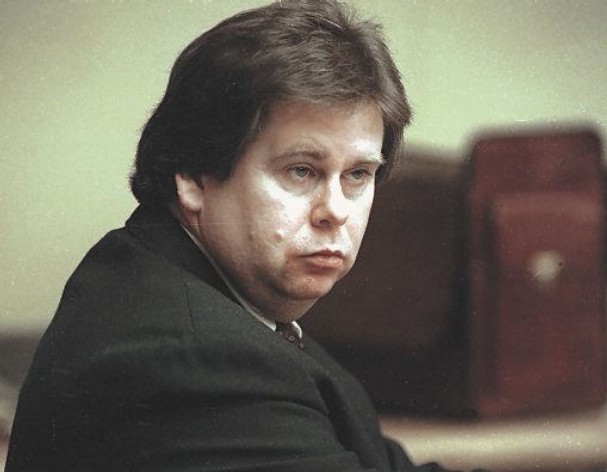
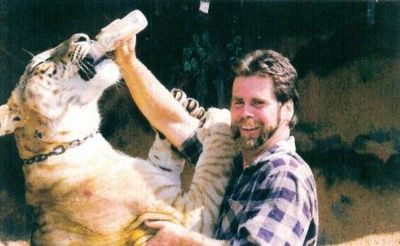
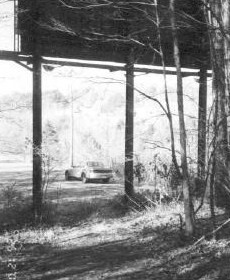
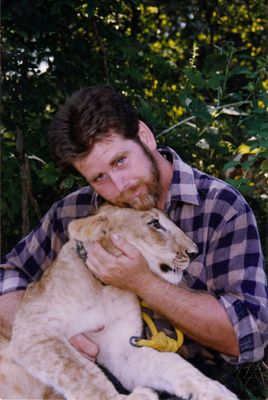
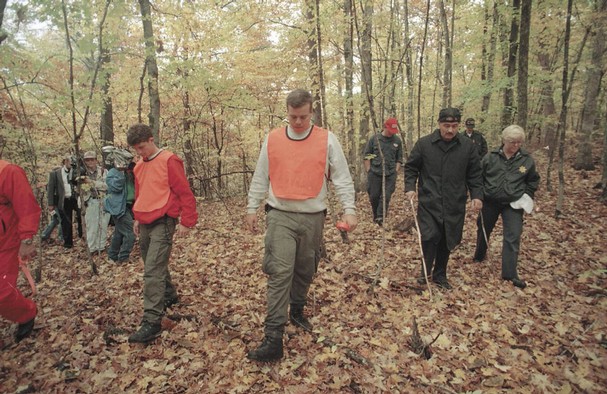
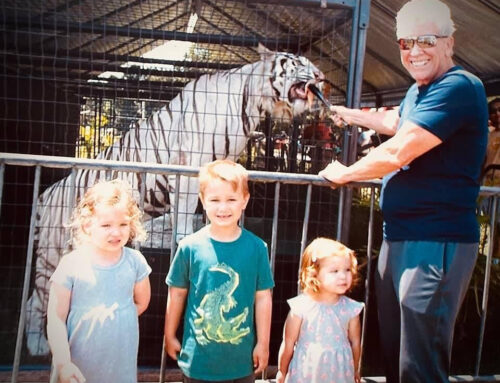


Leave A Comment
You must be logged in to post a comment.